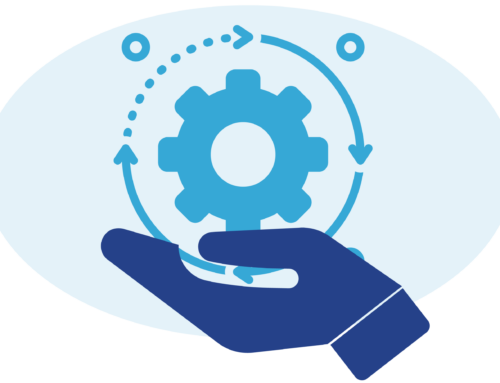If you’ve been hanging around the accounting world lately, chances are you’ve heard the term CAS accounting thrown around. But what is CAS accounting, exactly? And how is it different from the traditional accounting most of us are used to?
Let’s break it down in plain language.
What Is CAS Accounting?
CAS stands for Client Accounting Services—sometimes also called Client Accounting and Advisory Services (CAAS). At its core, CAS accounting is a modern, full-service approach to helping businesses manage their finances. Unlike traditional accounting, which is mostly focused on historical data, tax prep, and compliance, CAS is all about providing real-time support, financial strategy, and ongoing collaboration with clients.
In other words, with CAS, accountants don’t just show up at year-end to file taxes—they become a consistent, trusted partner helping businesses navigate the financial side of day-to-day operations.
Traditional Accounting: Still Important, but Reactive
Let’s start with what we know. Traditional accounting is the system many businesses have relied on for decades. It includes services like preparing financial statements, filing taxes, and sometimes audit support. It’s usually done on a monthly, quarterly, or annual basis. And while it’s super important, it’s also reactive. You look at what happened, clean it up, report it, and move on.
In this setup, accountants usually hear from clients a few times a year—often during tax season or when something has gone wrong. It gets the job done, but it doesn’t leave much room for proactive planning or strategy.
In traditional accounting, the value is mostly about staying compliant—making sure taxes are filed, books are closed, and reports are submitted on time. That’s all crucial, of course. But CAS accounting takes it further.
CAS Accounting: A More Active, Year-Round Approach
So what is CAS accounting doing differently?
CAS accounting flips the traditional model on its head. Instead of just focusing on the past, it helps businesses stay on top of what’s happening right now and plan for what’s ahead. The accountant becomes more like a financial partner than just a service provider.
With CAS, firms offer services like bookkeeping, payroll, financial reporting, forecasting, budgeting, and strategic advisory—all rolled into one. The goal? To help clients make smarter decisions, improve profitability, and grow their business with confidence.
With CAS, clients are getting much more than clean books. They’re getting real-time insights, financial planning, and advice that helps them grow. Whether it’s improving cash flow, planning for expansion, or making hiring decisions, CAS accountants are right there in the trenches with their clients.
One of the biggest shifts in CAS accounting is the relationship dynamic. In traditional accounting, the relationship is more transactional—clients reach out when they need something, and accountants respond. With CAS, the relationship is ongoing. Accountants are in regular communication with clients, keeping an eye on the numbers, spotting trends, and offering timely advice.
That kind of consistent support leads to stronger trust, better outcomes, and a lot more value for both sides.
CAS Relies on Cloud Technology
One reason CAS accounting is booming right now is the rise of cloud-based tools. Software like QuickBooks Online, BILL, Gusto, and other integrated apps make it easier than ever to share real-time data, automate day-to-day tasks, and collaborate remotely. Everything from bank feeds to invoicing can be streamlined and handled online.
Traditional accounting, by comparison, often still involves spreadsheets, manual data entry, and slower turnaround times. CAS accounting uses technology to work faster, smarter, and more efficiently.
Smarter Pricing = Better Communication
Another big change with CAS accounting is how services are priced. Instead of hourly billing or one-off projects, most CAS firms use fixed-fee or monthly subscription pricing. This makes costs predictable for clients and encourages them to stay in touch without worrying about being billed every time they pick up the phone.
That open-door communication leads to stronger relationships and more proactive service.
Why More Firms Are Adopting CAS Accounting
The shift toward CAS accounting is picking up speed for a few key reasons.
First, the technology now exists to support real-time, cloud-based collaboration. Second, business owners are looking for more strategic support, not just someone to do their taxes. Third, accountants themselves crave more meaningful, forward-thinking work.
From a business perspective, CAS also provides a more stable revenue model for firms. Monthly recurring revenue is more predictable than seasonal tax work, and the deeper client relationships lead to better retention.
Shifting from traditional accounting to CAS isn’t just about offering more services. It’s about rethinking how you deliver them. That means streamlining workflows, training your team, investing in the right tools, and educating clients on the value of a year-round partnership. It takes some effort to make the transition, but the payoff is huge: stronger client relationships, more meaningful work, and a business model that’s built to last.
Thinking About Offering CAS Accounting?
If you’re an accounting firm, moving into CAS services is more than just adding a few new offerings. It’s a mindset shift. You’ll need to streamline internal processes, train your team, invest in the right tech, and help your clients understand the value of ongoing support.
But if you do it right, the results are worth it: better relationships, more fulfilling work, and a stronger, more scalable business model.
CAS Accounting is the modern evolution of accounting services—more collaborative, more tech-driven, and more focused on helping clients thrive, not just survive. While traditional accounting still has its place, CAS accounting is quickly becoming the go-to model for firms and clients who want a deeper, more strategic partnership.
If you’re ready to take your accounting firm—or your business—to the next level, CAS might be exactly what you’ve been looking for.




Leave A Comment